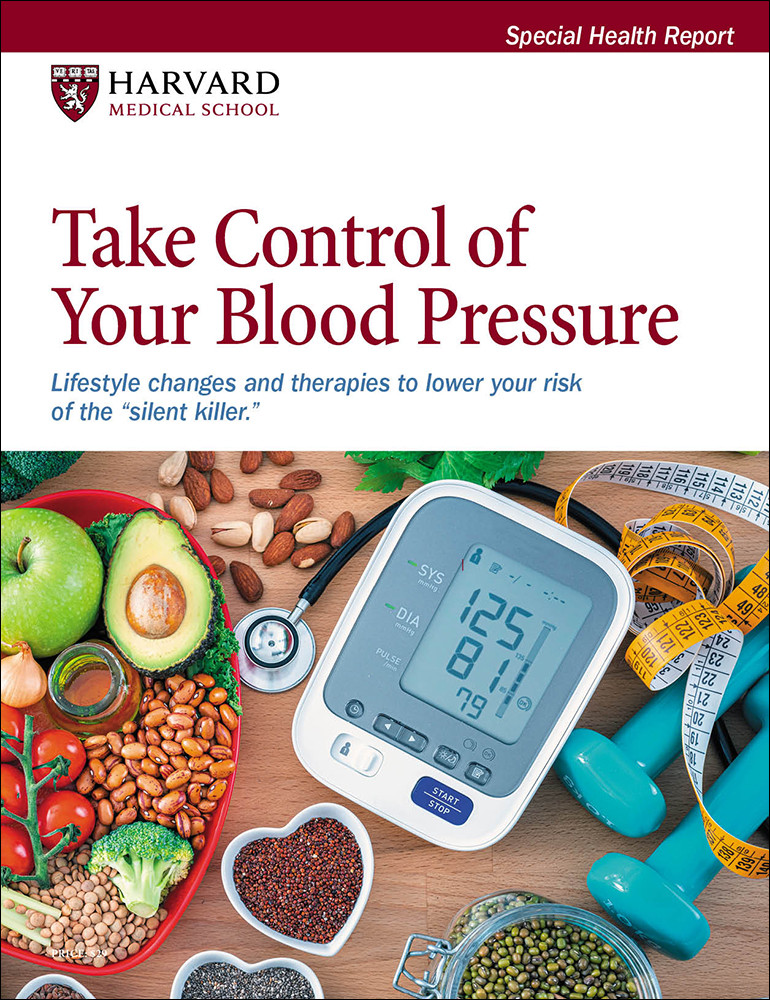Birth control and high blood pressure: Which methods are safe for you?

Three effective forms of birth control contain the hormone estrogen: the birth control patch, combined hormonal birth control pills, and a vaginal ring. Doctors have typically recommended that women avoid birth control with estrogen if they have high blood pressure, which current US guidelines define as 130 mm Hg systolic pressure and 80 mm Hg diastolic pressure, or higher. A recent clinical update in JAMA clarifies whether it’s safe for some women with high blood pressure to use these forms of birth control.
Why does blood pressure matter when choosing birth control?
Birth control containing estrogen can increase blood pressure. When women who have high blood pressure use these birth control methods, they have an increased risk of stroke and heart attack compared with women who do not have high blood pressure. However, their actual chances of having a stroke or a heart attack are still quite low.
When considering birth control options, it’s important to also weigh the possible risks of an unintended pregnancy. A woman who has a history of high blood pressure before she becomes pregnant is more likely to experience
- preeclampsia, a pregnancy complication that can affect liver and kidney function and can even lead to eclampsia, or seizures
- diabetes during pregnancy
- blood clots
- heart attack
She’s also at higher risk for problems with fetal growth and preterm birth.
Why are recommendations around blood pressure and birth control being updated?
When US blood pressure guidelines changed in 2017, many more people were diagnosed with high blood pressure. That happened because the new guidelines tightened standards, as follows:
- normal blood pressure is less than 120 (systolic)/80 (diastolic) mm Hg
- elevated blood pressure is between 120 and 129 mm Hg (systolic) and less than 80 mm Hg (diastolic)
- high blood pressure is 130 mm Hg (systolic) and 80 mm Hg (diastolic) or higher.
With these updated definitions, nearly half of American adults have high blood pressure. Black women are at particularly high risk: more than half of Black women over the age of 19 are diagnosed with high blood pressure.
If a woman has high blood pressure, the JAMA update recommends weighing three factors before starting an estrogen-containing birth control: a woman’s age, control of blood pressure, and any other risks for heart disease.
- Safe to use birth control containing estrogen: If women are 35 years old or younger, have well controlled blood pressure, and are healthy, estrogen-containing birth control can be used. Be sure to have a health professional check blood pressure within one month of starting this type of birth control. Additionally, routine blood pressure checks are recommended twice a year.
- Should avoid birth control containing estrogen: If women are older than 35, even if they have well controlled blood pressure, estrogen-containing birth control should be avoided. Similarly, women of any age who have multiple risk factors for heart disease or who have uncontrolled high blood pressure should not use birth control containing estrogen. These women also should not use the birth control shot (Depo-Provera) because it may increase cholesterol and lead to an increased risk of stroke, according to the review. (This medication contains a different hormone called progestin.)
The JAMA update reviewed evidence based on an older definition of high blood pressure in the context of birth control use. Further research is needed to better understand how different ranges of blood pressure might affect women using birth control that contains estrogen. However, it’s unlikely that these recommendations would change further based on the newer definition of high blood pressure.
Which birth control methods do not contain estrogen?
So, what can women who are unable to use birth control containing estrogen use to prevent pregnancy? The good news is that there are a variety of other birth control methods available, both hormonal and nonhormonal.
- The most reliable forms of birth control without estrogen are the copper intrauterine device (IUD), the hormonal IUD, the implant, and sterilization for women or men.
- Nonhormonal methods include the copper IUD, condoms for men or women, cervical cap, and diaphragm.
- Three progestin-only hormonal methods are safe to use: the minipill, the birth control implant, or the hormonal IUD. However, the birth control shot (Depo-Provera) is not recommended for women who have poorly controlled high blood pressure.
If you do have high blood pressure, exercise and dietary changes remain an important component of maintaining your heart health. Discuss with your doctor which birth control options might be best for you, so that you and your doctor can engage in shared decision-making about your preferences.
See the Harvard Health Birth Control Center for more information on options.
About the Author

Huma Farid, MD, Contributor
Disclaimer:
As a service to our readers, Harvard Health Publishing provides access to our library of archived content. Please note the date of last review or update on all articles.
No content on this site, regardless of date, should ever be used as a substitute for direct medical advice from your doctor or other qualified clinician.
















